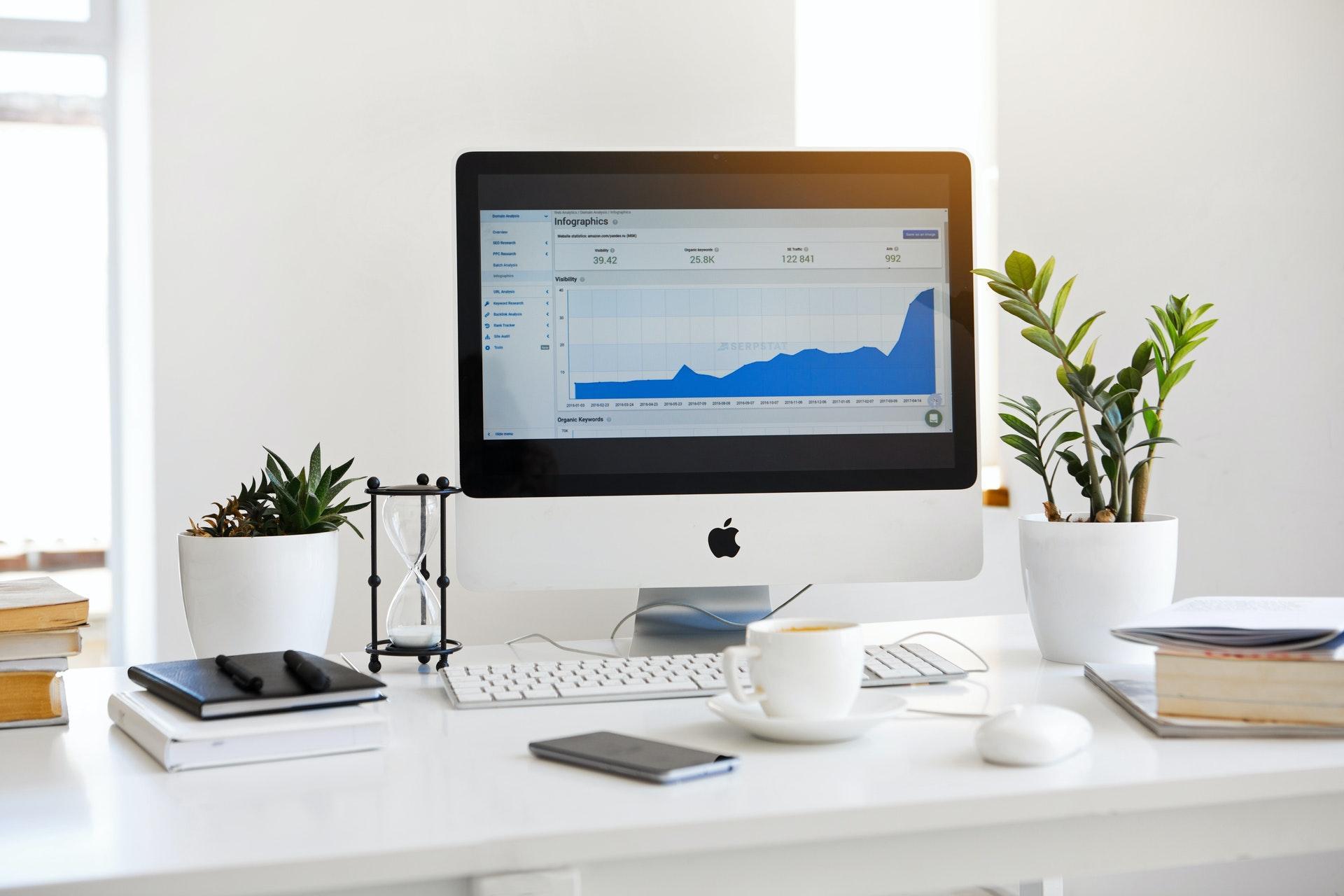Best Accountancy Platforms for Ecommerce Businesses
By Rodney Laws | Business

Finding the right accounting software for your ecommerce business is key to ensuring that you can properly manage your finances, keep track of your profits, and grow your business successfully.
But what is the best ecommerce accounting software for your business, and how do you decide?
We’ve got you covered with the below guide to accounting software for ecommerce owners. We’ve written up bitesize reviews of the best ecommerce accounting software providers — including the features, pros, cons, and cost of the ecommerce accounting software provider, along with ecommerce platforms they can be used on.
Read on to find out more:
| Cost | Features | Pros | Cons | |
| Wave | Free |
|
|
|
| Xero | $9-60 per month |
|
|
|
| QuickBooks | $12.50-$75 per month |
|
|
|
| FreshBooks | $6 – $20 per month |
|
|
|
| FreeAgent | $12-$24 per month |
|
|
|
Once you’ve picked your ecommerce platform, set up your store, and before you start selling, you need to put in place accurate and reliable accounting processes. This will help you to understand exactly how your business is doing, where the money is, and what areas you need to be working on improving. Accurate bookkeeping is going to ensure that you can build a stable business that’s able to grow.
Having a solid understanding of your finances will also help you to forecast how your business can develop — you’ll be in a much better position to predict your growth and build plans around it.
The other main reason that accounting is so important for your ecommerce business is that it makes it a whole lot easier to sort out your taxes at the end of each year.
It’s important to stay consistently on top of your finances. Even neglecting them for a short time can lead to some serious problems for you and your business.
When it comes to sorting out your business’s taxes, you need to have all your paperwork in order, ready to share with your accountant or directly with the government. If you let things slide, you’re going to spend hours trying to find all the invoices, bills, and other documents.
This can cause much bigger problems in the long run. Submitting your tax returns late can result in hefty fines. You’re also going to end up paying fines if you find that some of your paperwork is missing, or you end up miscalculating your finances.
If you’re looking for investors or to get a business loan from the bank, you need to have all your financial documents in good order and ready to share. If you don’t have this all lined up, or there are some gaps in your finances, it’s going to look like your business is an unreliable and risky investment.
Failing to keep on top of your finances can also lead to cash flow problems — you won’t have a clear idea of how much money you have coming in, and how much is going out. This is when you’ll end up missing bill payments, or being unable to pay your staff, and once you start to have cash flow problems it’s hard to get yourself back on track.
There are a lot of accounting platforms out there, and it’s hard to know which one will be best for your ecommerce business. The good news is, most of them will offer a free trial, so you can test them out and get to grips with how they work.
When you’re looking for accounting software, check whether it integrates with the systems and software you’re already using — it will make things a lot simpler if it works with your store platform to pull in your sales data.
You should also look for bank reconciliation features, where it connects with your bank account and pulls in all your transactions so that you can organise them. This also means that recurring payments such as rent can be automatically categorised.
Reporting is another important feature to consider — you want to be able to easily see weekly and monthly reports of your finances so you can keep an eye on everything. Your accounting software should also be able to produce tax compliant records.

Image: Pexels
The other key thing to think about is what customer support the platform offers. If something goes wrong with your accounting, you don’t want to be waiting days for a reply. Check out what support channels they offer and how quickly they respond. Do they have a good reputation as an ecommerce accounting software provider?
Some accounting software will include other features such as payroll processing or inventory management. While these might not be essential straight away, as your ecommerce business grows it might make life easier if you can manage these things all in the same place — and you might pay less than if you’re using other software as well.
If you know roughly what you’re looking for, but you’re struggling to decide between software options, you’ve come to the right place. Here is our list of best ecommerce accounting software for ecommerce businesses:
Quickbooks works well for any size business, but its features and simple design make it particularly ideal for small and medium ecommerce businesses. It has affordable pricing plans that include everything an ecommerce business would need and make it suitable to use as your business scales — plus it integrates with all the main ecommerce platforms.
QuickBooks is easy to integrate with the majority of ecommerce platforms and banks, it’s straightforward to set up and use, and it offers some useful reporting features. It offers a lot of automation that will take a lot of repetition and admin out of keeping your finances in order.
They also have live telephone support so you can get help with any issues immediately.
Although the basics are pretty easy to use, some of the advanced features are quite complicated to get to grips with.
It’s also not the cheapest option for ecommerce accounting software, but it does offer all the important features that you would need.
Essentials plan – $12.50 per month
This includes all the basic functionality you might need when you’re getting started to input and track your income and expenses, send invoices, and pay bills.
Plus plan – $35 per month
This plan is usually the best for small or medium ecommerce businesses. You can run enhanced reports, manage inventory, and have up to five users.
Advanced plan – $75 per month
With their top plan, you can have up to 25 users with custom permissions, produce batch invoices and expenses, and you have access to training and 24-hour support.
QuickBooks works with all the main ecommerce platforms and tools including Shopify, PayPal, Square.
If you’re looking for a slightly cheaper alternative to QuickBooks but with all the same key features then Xero is the best option.
It’s another web-based platform, with the essential accounting functionality such as importing transactions, managing expense, invoicing, and reporting, that a small business will need.
However, while their pricing plans are slightly cheaper they are a lot more restricted than QuickBooks.
Xero is easy to set up and intuitive for users — plus it offers affordable pricing plans. It connects to all major banks and ecommerce platforms so there’s no need for manually importing any of your data.
One of the biggest downsides for Xero is that they only offer customer support via email, which means it can often take more than a day to get a response.
It also lacks some of the smaller features that you might want such as cloud storage and integrations with tax software.
Early plan – $9 per month
All of their plans have access to their main accounting features, but the basic plan only allows you to send five invoices and quotes per month, enter five bills, and reconcile 20 bank transactions.
Growing plan – $30 per month
You can send unlimited invoices and quotes, enter bills, and reconcile any number of bank transactions.
Established plan – $60 per month
As well as sending invoices, entering bills and reconciling bank transactions, the top plan also includes multi-currency transactions, expenses management, and project management features.
As well as connecting with all major banks, Xero can be used with the main ecommerce platforms including Shopify, Squarespace, and BigCommerce.

Image: Pexels
If you don’t want to pay for your ecommerce accounting software — or can’t — then there are still some great options out there for you.
Here is our favourite (and arguably the best) free accounting software for ecommerce businesses:
Wave is free cloud-based accounting software that offers most of the basic functionality that ecommerce businesses require. You can track income and expenses, send invoices, scan in receipts, and connect bank accounts or PayPal for a live record of transactions.
Wave is specifically designed for small businesses and it includes all the features you would need with no limitations for free. It’s fairly simple to set up and get started, and it’s easy to use, with a good mobile app that allows you to keep track of things when you’re on the go.
While all the accounting software features are free you do have to pay to use Wave’s payment processor or payroll system.
It also lacks features that other paid software will have such as inventory management and time trackers, and you can’t set up multiple users on the same account. The reports you can produce are also fairly basic and can’t be customised.
It’s free to use Wave for accounting, invoicing, and receipts, which covers most of the features a small ecommerce business would require. If you want to make payments through the software there’s a charge per transaction ranging from 1% to 3.4% + 30¢ depending on which type of card you’re using.
Their payroll system starts at $20 per month plus $6 per active employee, and $6 per independent contractor paid.
Wave can be integrated with your Shopify account to import all your transactions. It also works with PayPal, Shoeboxed, and Etsy, as well as all major banks.
Ecommerce businesses have a lot of options when it comes to accounting software, but it’s important to find one that meets your specific requirements, is easy to use, and that any accountant you’re working with is happy to use.
While, initially, you might look for free accounting software, as your business grows you might need some of the advanced features that other paid platforms offer — and it’s worth considering how easy it is to switch over. Whatever your needs, there is always an ecommerce accounting software option for you